Champions of Change Blog
We Hire Members of the Military Community Because Our Business Depends on It
Posted by on November 16, 2011 at 10:30 AM EDT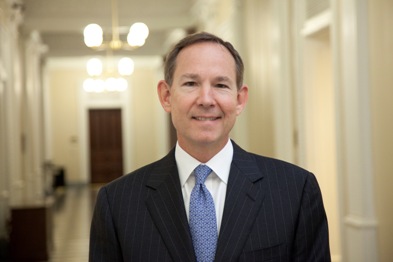
Eurpac hires veterans, retirees, and military dependents.
Our company doesn’t do this out of some sense of obligation, or pressure, or gratitude. We are grateful for the service of those who risk their lives for this country, and their families. But, we run a business, not a charity. And that business runs better when we hire members of the military community.
We’ve learned over time that military-affiliated employees are more responsible, more reliable, and show better problem solving than the average employee. These people have already done things that were much more challenging than working for us. They’ve already been taught to overcome obstacles and think for themselves – we just have to train them on our product.
Learn more about VeteransSupporting our Military Members and Families Beyond Their Time of Service
Posted by on November 14, 2011 at 6:14 PM EDT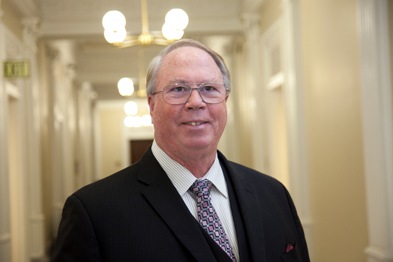
On November 9, during the week when we celebrate Veterans Day 2011, I was invited to the White House to be recognized as a Champion of Change in America. This recognition is a result of several initiatives undertaken by the American Logistics Association to support employment opportunities for veterans and military family members as an initiative in support of the Joining Forces program under the leadership of the First Lady.
I am honored to receive this recognition but I must share it with exceptional leaders in the military resale business channel that day in and day out for over 100 years have been taking care of our military and their families. What we are talking about here are the retail stores on military bases around the world that go where the troops go and give back every day. The commissary, the exchange retail outlets, the veterans canteen stores in the VA hospitals, the morale, welfare and recreation programs that provide a touch of home to our troops all around the world are the single largest employer of military family members in the world. It is their leadership that helped bring this issue to the forefront.
Learn more about VeteransREBOOTing the Lives of Our Military Veterans
Posted by on November 14, 2011 at 1:38 PM EDT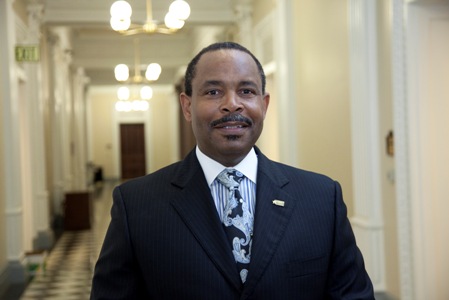
This week it was my honor and privilege to be recognized by the White House as a Champion for Change. I, along with my fantastic team from the National Veteran Transition Services Inc. (NVTSI) were truly inspired and humbled to know that what we are working to accomplish through the REBOOT Program is truly making an impact on the lives of veterans and their families.
As a 26 year veteran of the United States Navy, I am acutely aware of the unique needs of our military men and women. Leaving the military is a significant social, psychological, and professional transition. Since September 2001, roughly 2 million veterans have returned to civilian life. Up to 200,000 more may join the civilian job market annually in coming years.
Military service endows important personal characteristics, practical skills, and professional experience; however, translating these skills to civilian life is often a challenge. Existing efforts focus primarily on the basic aspects of the employment transition, but do not adequately address personal and lifestyle transition or effectively prepare and support professional transition. According to Military.com surveys have shown that 81 percent of transitioning military personnel do not "feel fully prepared for the process of entering the job market."
Learn more about VeteransNow Is the Time for Change
Posted by on November 9, 2011 at 10:44 AM EDTFor six years of my life I lived out of a suitcase, travelling to war-torn countries, where a small group of us built an organization called Playing for Peace. The idea was to use sports to get kids from both sides of a conflict meeting each other, finding common ground and eventually becoming friends. I am a huge believer in the concept that the most powerful weapon in the world is an idea whose time has come, and the idea of using sports to promote change couldn’t have been more timely.
I have spent a lot of time on airplanes as a result of this work and inevitably would also spend a considerable amount of time talking to those sitting next to me on each flight. One of my favorite questions to ask people was: “if you could go back in time, which period would you choose to go back to?” The answers I received were always interesting and ranged across the board. Some wanted to go back to the days of the cavemen, some wanted to live as knights in the Medieval Ages, and others wanted to go back to the free flowing 60s.
On one particular long flight from London to Johannesburg I had the opportunity to speak with a teenager who seemed mature past his years. Long into our conversation I ventured to ask him the question. Without any hesitation he looked me in the eye and he responded: “I would go back to Nazi Germany.” I was stunned by his answer and asked him to explain why he would choose that dark period. Without losing eye contact he told me that he felt he would have had a chance to stop Hitler, or at least he might have been able to make a difference in the lives of those who were being persecuted.
This young man’s statement was incredibly powerful and it caused my mind to race for the rest of the flight. I had always wondered what side of a struggle I would have chosen if I had been in a position to choose. Being a white American, if I had been born in Alabama during the civil rights movement, would I have had the courage to stand out against what was happening and join the likes of Martin Luther King Junior or Malcolm X? If I had been born a white South African growing up during Apartheid, would I have had the strength to go against the grain and fight for equality? Would I have had the clarity of mind to stand for the freedom of the blacks in South Africa?
Then I saw myself 20 years from today sitting next to a young adult asking me the same question I had asked during my travels. What would I say to this eager person? Would I tell him Nazi Germany, the American Civil Rights movement, or the Apartheid time in South Africa? That is when I realize that the time is now. I today along with everyone have a responsibility that is pressing. I look around our nation and the opportunities that are present. The state of our education system as it currently stands is criminal. If we can’t fix it quickly then we will lose another entire generation of children, putting us even further behind rapidly growing nations. Global Warming and clean energy are not being taken seriously and continue to be punted to the next generation to deal with. HIV/AIDS claims over two million lives per year. Those are just to name a few. My point is that now is the time to act. Now is the time to become aware and awake, and to stand up for change. Nelson Mandela could have just waited for the next person to do something. Martin Luther King could have hoped that someone else would have started the movement.
We are all in a position to choose that what we say matters because it serves, as we speak. We are always in the thick of the fight, even though we may not know it at the time, and only the great ones have the vision and leadership to see to it and act on it. I believe that great leaders and heroes have been selected as Champions of Change and I look forward to hearing about all of the movements, companies and ideas you have created and are supporting across the country to help make our world a better place.
Thibault Manekin is a co-founder of Seawall Development, which redevelops historic city buildings as office space for non-profits and housing for teachers.
Revitalizing Rural America
Posted by on November 8, 2011 at 4:26 PM EDT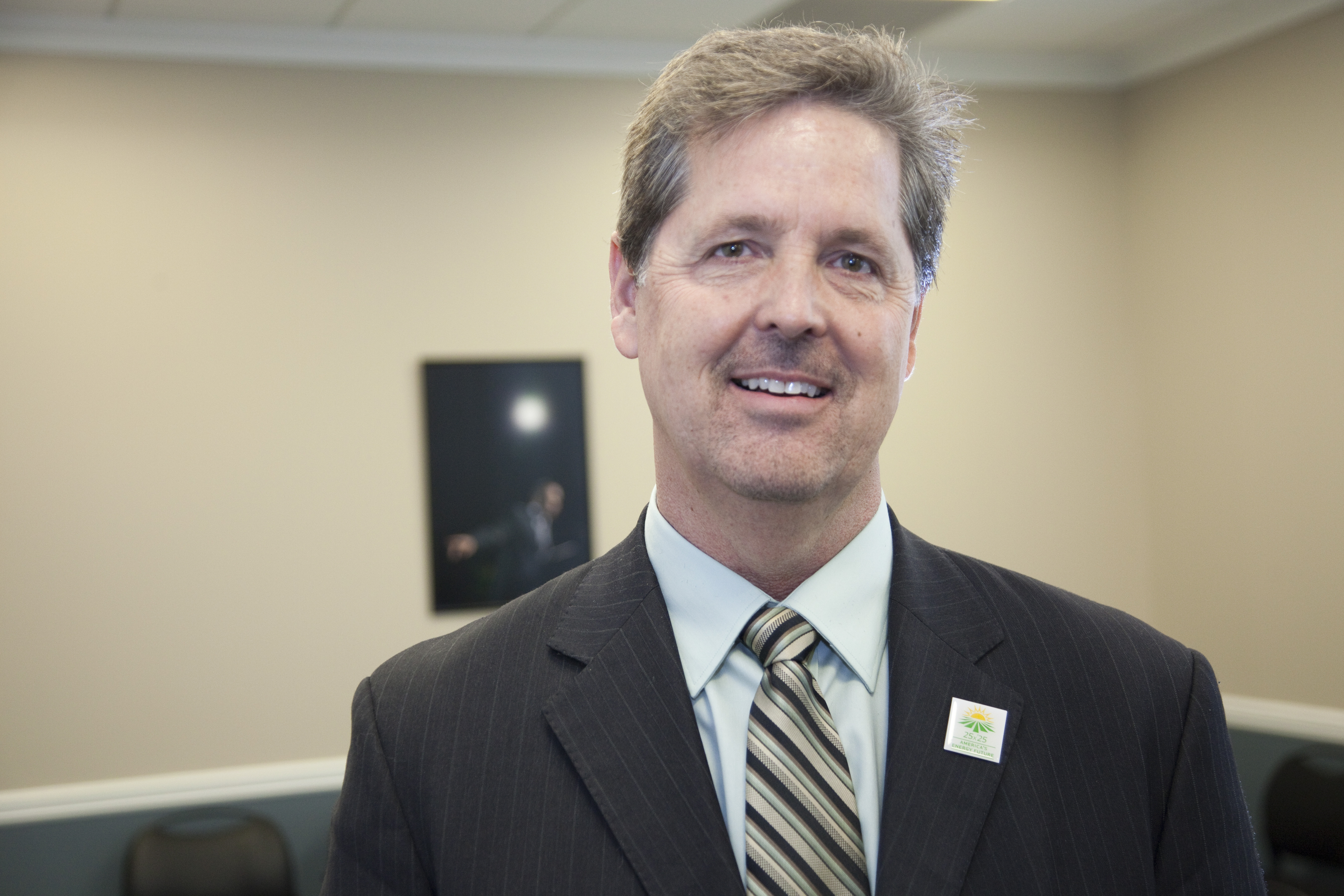
On November 3, I was honored with a Champions of Change award, allowing me to join a conversation between Administration officials and visionaries from around the country to discuss the many challenges and opportunities that face rural America.
I am a fifth-generation descendant of Colorado homesteading pioneers; my maternal grandparents were Minnesota dairy famers. Over a course of five decades I have witnessed technological and social changes that have both made our rural landscape the breadbasket of the world – and created a new social paradigm where our best and brightest often leave, never to return. It is with no sense of irony that a landscape that contains some of our grandest natural resources – our air, sun and water – the very infinite resources that produces this country’s food, feed, fiber and fuel – is the same landscape that is becoming increasingly depopulated.
Just seven decades ago our nation embarked on the idea of rural electrification. It is because of that effort that we saw a revolution in agricultural productivity and the establishment of vibrant, rural communities across this country. In thanks to the partnership between the resources of the federal government and the ‘can do’ attitude of our rural constituents, the economic potential of our resources were unleashed, bringing with them great prosperity.
Today we find ourselves at a crossroads across this vast landscape. As our nation embarks on what some may call our ‘Apollo moment’, the question remains: will we find ways to connect today’s technology to the distribution grid, gathering the bounty of our air and sunshine to provide affordable, local power to the masses? Will we harness the power of the sun through photosynthesis, converting our vast solar wealth into biomass for our fuel supply? Will we find ways to connect restorative practices to our soil carbon and organic matter to provide both a new source of revenue for America’s farmers and ranchers? Will we re-establish ourselves as global thought leaders on building the foundation for a 21st century global economy?
One of the organizations I helped found, “25x’25”, is an alliance on national interests who seek to establish agricultures role in these new markets; we seek to enhance the economies and opportunities to our rural areas. We seek common sense, pragmatic solutions to our nation’s woes. A second organization I help found, the Sustainable Biodiesel Alliance, promotes a local model of biofuel production. The ‘local first’ approach to vision is one we believe maximizes both job and wealth creation at a community level. It is an approach that we believe should be applied to all local resources, whether they be food, liquid fuels or an electron.
As a citizen of Colorado, we have demonstrated the effects of sound public policy related to a New Energy Economy. What started as a modest goal of 10% renewable energy in our electrical supply in 2004 has grown to a 30% standard today. Our focus on the conversion of our natural resources to an infinite supply of affordable, homegrown power has brought with it untold opportunities across broad swaths of our eastern Colorado prairies and our mountain valleys; it has attracted new industry and with it an expanding tax base and unleashed a torrent of entrepreneurial spirit. Our state ‘blueprint’ demonstrates a clear path upon which our nation would be served well to embark upon.
A revitalized rural America is one of the many benefits of a national focus on building a 21st century economy through technology, innovation and public support. Just as we were challenged some five decades ago by President Kennedy to land on the moon before the end of the decade, [a feat we accomplished in eight years], so today we face many of the same perilous challenges: our role as a global leader; our mission to out-innovate the rest of world – starting at home. On the farm. In every community across this nation. We owe it to the generations that follow us to embark on a visionary goal of energy independence, a strong rural economy and national policies that recognize the importance of the value American agriculture brings to the nation’s table of prosperity.
Michael Bowman serves on the National Steering Committee for "25x'25" and was a founding member of the alliance.
Preparing Today's Technicians for Tomorrow's Automobiles
Posted by on November 8, 2011 at 1:30 PM EDTEd. Note: Champions of Change is a weekly initiative to highlight Americans who are making an impact in their communities and helping our country rise to meet the many challenges of the 21st century.
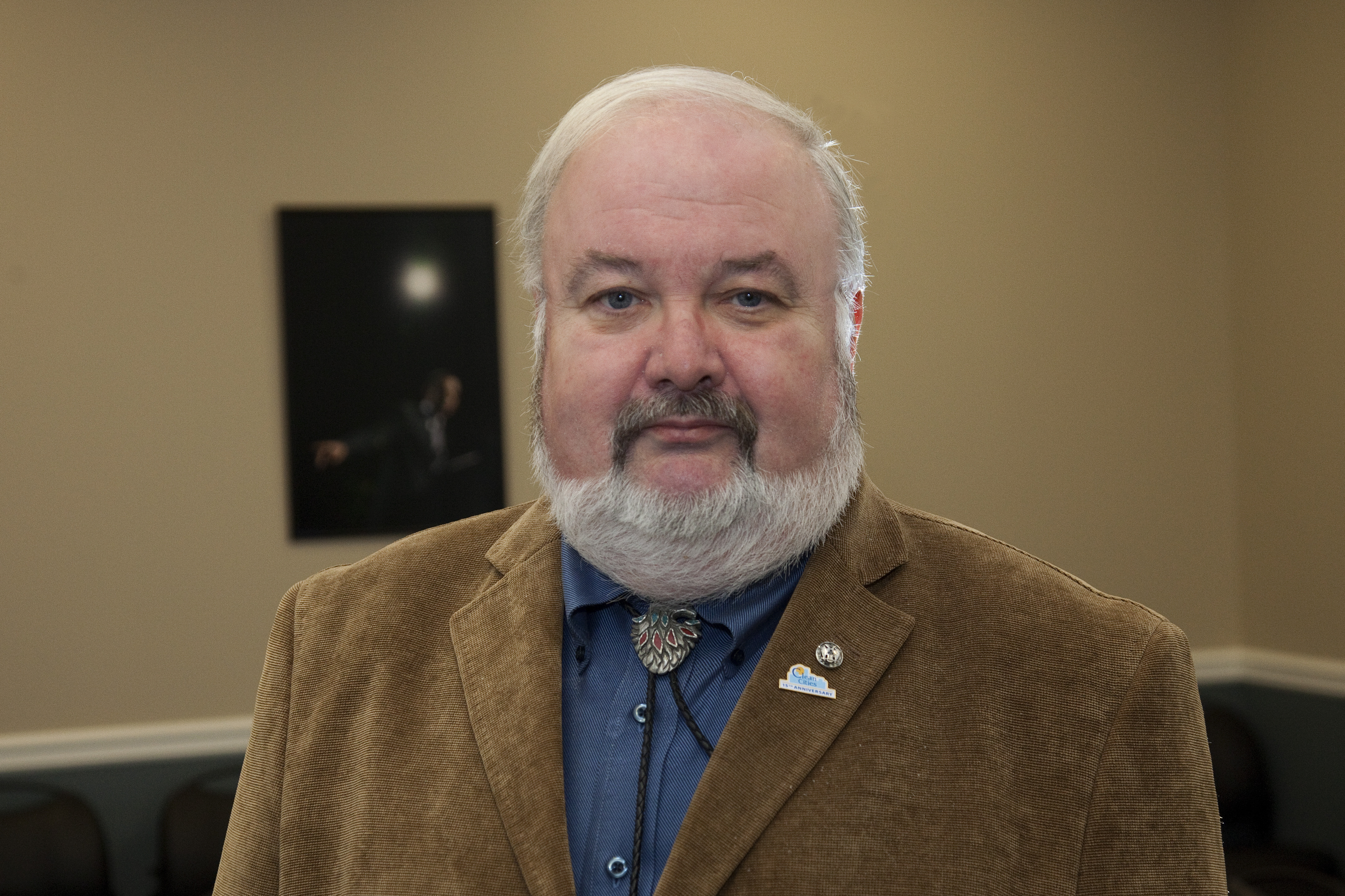
For better or worse, the American economy is tied to the automobile and even more to the concept of personal transport. While at first the automobile was only a plaything for the rich, industrial pioneers such as Henry Ford and William Durant developed manufacturing systems which made the automobile affordable for millions of Americans. They also created the American Middle Class with an industrial model that brought wealth and freedom to more people than any previous economic system in human history.
However, for any technology to remain successful, for any business model to remain successful, it must evolve and adapt to macro changes; changes in energy supply, changes in our environment, changes in our demographics and our economy.
The automobile business as we know it must evolve. Drive down any main street in America and inventory the businesses that are tied to the automobile: new car dealerships, used car dealers, independent repair shops, national service franchises, tire retailers, gas stations, car washes and detailers. Don’t forget the associated businesses that are supported by the sales, financing, fueling, repair and maintenance of this ubiquitous product. It is one of the pillars of our economy. Yet the automobile must evolve. At Wake Tech and now as a Champion For Change, my focus is the automotive service sector and the recruitment, training and professional development of the automotive technician. “Make It In America” requires a highly trained and well paid service sector!
- &lsaquo previous
- …
- 145
- 146
- 147
- 148
- 149
- 150
- 151
- 152
- 153
- …
- next &rsaquo
White House Blogs
- The White House Blog
- Middle Class Task Force
- Council of Economic Advisers
- Council on Environmental Quality
- Council on Women and Girls
- Office of Intergovernmental Affairs
- Office of Management and Budget
- Office of Public Engagement
- Office of Science & Tech Policy
- Office of Urban Affairs
- Open Government
- Faith and Neighborhood Partnerships
- Social Innovation and Civic Participation
- US Trade Representative
- Office National Drug Control Policy
categories
- AIDS Policy
- Alaska
- Blueprint for an America Built to Last
- Budget
- Civil Rights
- Defense
- Disabilities
- Economy
- Education
- Energy and Environment
- Equal Pay
- Ethics
- Faith Based
- Fiscal Responsibility
- Foreign Policy
- Grab Bag
- Health Care
- Homeland Security
- Immigration
- Innovation Fellows
- Inside the White House
- Middle Class Security
- Open Government
- Poverty
- Rural
- Seniors and Social Security
- Service
- Social Innovation
- State of the Union
- Taxes
- Technology
- Urban Policy
- Veterans
- Violence Prevention
- White House Internships
- Women
- Working Families
- Additional Issues

